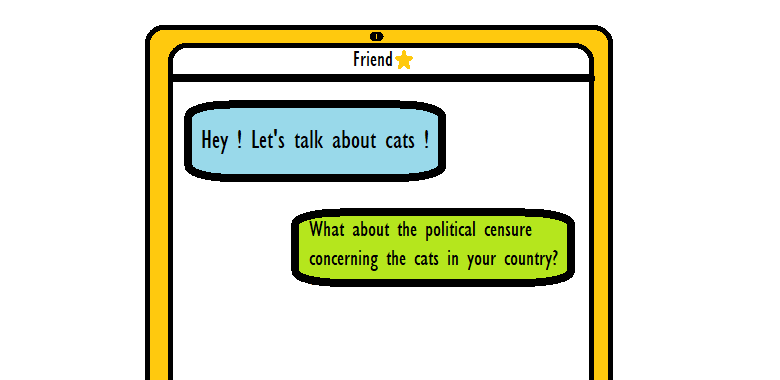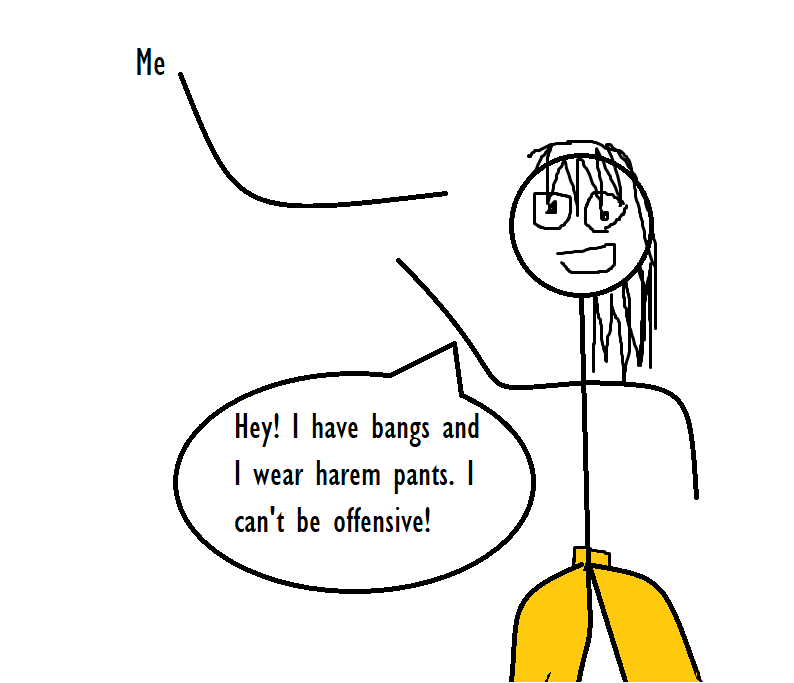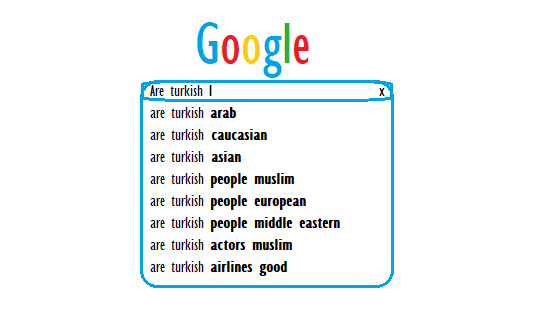
Why do I keep making the same mistake with my non-European friends over and over again ? (An illustrated tale).
 8 min
8 min
Why do I keep making the same mistake with my non-European friends over and over again ? (An illustrated tale).
(I am referring here to non western-european friends, as Turkey is also part of Europe)
or
How can we be better at intercultural communication by starting to be better friends.

Yesterday, out of sudden curiosity, I asked a question, to my Chinese friend, about censure in China. She answered patiently and then manifested a disappointment. I made her upset, and I didn’t understand why.
She was expressing her love for certain bookshops in Beijing, filled with cats and interesting books; all this wrapped in a nice atmosphere. Me? I put on my western shoes, and step into this conversation by bringing the censure question, which was unrelated to the whole subject. It’s not the first time we talk about censure, so what is the issue?
“It’s hard to show the rest of the world that we’re not just what you read in your media.”
She told me. And this sentence resonated in me, and brought back memories.
Let’s rewind here.
This story is the first that made me question myself on this matter. I was in the wrong but couldn’t understand why.
How I once asked my Turkish friend if he had a birthday date. (Yes. I know. But let me give you some context.)
2017 — Erasmus — Spain.
My German roommate’s dad is from Turkey. She explains that he doesn’t know the real date of his birthday. So on his ID card, 1st of January is written as the official birth date. She says it’s the case for many Germans that are born Turkish. I think “oh, that’s a curious fact about Turkish people that I didn’t know of”.
Of course, as a journalist student, full of curiosity, interest, and other adjectives we all relentlessly repeat during job interviews, I need to know more. I HAVE TO ask the first and only Turkish person I know: he is cool, he is my friend, I met him between 2 vino riojas; he’ll tell me for sure.
“What kind of persons do you think we are in Turkey?”
Oops.
“Of course, I have a birth date! I am born.”
Why is he so mad?, I think. I am just interested in his culture!

I learned later that the birthday anecdote was true for some immigrants that had to run away from their country while not having access to their birth records.
What happened? I thought I was conversing and exchanging about culture. But I ended up just making a condescending — because ignoring — commentary about his parent country. And I could have prevented it by using this magnificent tool called Google.
What happened exactly here ?
First, I heard a specificity about someone, and I made it a generality for the whole people. And the thing is, it’s not the first time someone asked him that.
Second, I assumed it was his role to educate me about his country while he has to listen to stereotypes about it every day. And not nice stereotypes like “you eat baguette and frogs”
I attended classes of intercultural communication during my bachelor years. The theory is nice but it’s not the real deal. You can know and read everything about Edward Hall; it is nothing in comparison to experiencing it.
We need to admit we are this biased creatures, influenced by the western world culture, knighted by the all-mighty occidental point of view.
I know that. I learned about it. I met people. How come I make the same mistakes over and over again?
Sometimes, if you don't find the answer, it's because you're not asking the right question. Now, how can I be better at this, and try to prevent the next mistakes?
The Turkish story is a bit different than the Chinese one. But they are both about one thing : mistaking geniune curiosity with white savior complex. Playing at the -open minded-educated about other cultures-"citizen of the world blabla" student- talking about what you think you know instead of listening for real and be open to learning.
You can talk about censure with your Chinese friend. Well, you can talk about everything with your friends of course. And you should. But you can also enjoy your time together from time to time without playing at Amnesty International undercover super-agent.
As much as we want to think the Internet makes us kings of the world, seated on our thrones of knowledge, we cannot know accurately about a reality somewhere unless we live there for quite a time. Thus, we don’t know the questions that are worth raising, we don’t know what our friends had been experimenting, and all the questions they already heard before.
My Chinese friend used these words, that pretty much sum up the whole idea of this text. When I asked about the book censorship, she told me she was sad to constantly hear that kind of thought “as if we were subnormal and have no idea about the world.”

Though we can’t see the world through their eyes, we can try to put on their glasses on our noses sometimes. How so?
First, yes, questions are good. It’s not a reason to treat them like your search engine or smart speaker. Ask but also listen. I assure you, the best conversations, the most surprising facts, the deepest exchanges, I had them by going with the flow, by trusting the process of a casual conversation.
If you are really interested in their country, and if you can’t visit right away, know that they will bring most of the topic worth the discussion by themselves, just like you do with your own country.
(It is not a moral lecture here; I am mainly talking to myself. (Well, I am literally seated at a coffee shop alone, writing my thoughts, so I guess that makes me pretty much talking to myself.))
Finally, let’s talk about the the real lesson of all that: when the discussion is about cats, why would you change it ? What a waste.










 English
English
 Français
Français
 Deutsch
Deutsch
 Italiano
Italiano
 Español
Español



 Beitragen
Beitragen








 Du kannst deine Lieblingsautoren unterstützen
Du kannst deine Lieblingsautoren unterstützen






Alexandre Leforestier vor 3 Jahren
Here is the link :
https://www.linkedin.com/posts/alexandreleforestier_why-do-i-keep-making-the-same-mistake-with-activity-6997982947018424320-Mn6z?utm_source=share&utm_medium=member_desktop
Alexandre Leforestier vor 3 Jahren
Merci Juliette pour cette publication.
If you want, I can share on LinkedIn in my network... If you confirm, I'll do it ! ;-)
Juli8 vor 3 Jahren
Avec plaisir !
Alexandre Leforestier vor 3 Jahren
With pleasure !